Improving the quality of human resources in the Oil and Gas industry to meet development requirements in the new period
Over nearly 40 years of renovation, the Communist Party of Vietnam has always identified human resources as the center of all socio-economic development strategies and the promotion of the human factor is considered an important task, a strategic breakthrough. Human resources are not only the center but also the driving force and goal of economic development, playing a key role in creating productive forces and sustainable development in the context of international integration. In 2015, the Vietnamese oil and gas industry faced many difficulties due to the decline in world oil prices and fierce competition from other countries. To meet these challenges, the Politburo issued Resolution No. 41-NQ/TW on July 23, 2015, setting out the orientation of the Vietnam Oil and Gas Industry Development Strategy to 2025 and a vision to 2035. The Resolution emphasized sustainable development and improving the quality of human resources. Continuing to specify these orientations, the Prime Minister issued Decision No. 1749/QD-TTg dated October 14, 2015 approving the Development Strategy of the Vietnam Oil and Gas Group to 2025 and orientation to 2035. This Decision includes the goals of developing the Vietnam Oil and Gas Group (Petrovietnam) into a leading Industry - Energy Group, with modern technology and management, playing a core role in ensuring national energy security and sustainable development. Mobilizing all resources to invest in developing core areas, new and clean energy, expanding markets and international integration. To do this, the Prime Minister issued Decision No. 1243/QD-TTg dated October 25, 2023, clearly stating the need to improve the quality of human resources, ensure highly qualified human resources and meet production and business requirements in the new situation.
Vietnam University of Petroleum (PVU)
Oil and gas is a high-tech industry with a specialized and specific nature, including many stages: from searching, exploring, exploiting to transporting, processing, storing and distributing. The oil and gas industry requires very modern technology, huge investment capital, high internationality and good profits, but proportionally comes with potential risks that are difficult to predict. In the context of the world witnessing a strong energy transition, with increasing focus on renewable and sustainable energy, and the fourth industrial revolution with remarkable advances in digital technology is changing all fields, including the oil and gas industry. Energy transition is an inevitable trend of sustainable energy development in the process of moving towards the goal of reducing greenhouse gas emissions to zero. In this context, improving the quality of available human resources and building a future workforce with good expertise, the ability to access and apply new technologies such as digital technology, AI, Big Data and Internet of Things (IoT), etc. with skills to meet the development requirements in the new period is becoming a key and urgent factor for the Vietnamese Oil and Gas industry to continue to develop and adapt to new requirements.
Up to now, the Vietnam Oil and Gas Group has a relatively synchronous system of training and developing human resources. From the management level of the Group, there is a Human Resources Management Board responsible for planning the training and human resource development strategy of the entire Group, to the affiliated production and business units, there are Departments/Offices in charge of building human resources. In particular, the Group also has 03 research and training units (Vietnam Petroleum Institute - VPI, PVU and PVCollege).
As one of the two units performing the training tasks of the industry, Vietnam Oil and Gas University (PVU) was established in 2010, is a special public university, under the Vietnam Oil and Gas Group, has made important initial contributions to the career of training high-quality human resources to serve the sustainable development of the Vietnam Oil and Gas industry. In 2020, the University was recognized to meet national quality accreditation standards. In 2022, all 03 university-level training programs of the University (Geological Engineering, Petroleum Engineering and Chemical Engineering) were recognized to meet ABET quality accreditation standards (USA) with the highest term (06 years). These are the first university training programs in the Oil and Gas industry in Vietnam to meet ABET quality accreditation standards. It can be said that to achieve this success, the School has received a lot of support both materially and spiritually from the Vietnam Oil and Gas Group, the Group's member units and domestic and foreign partners. This once again affirms the superiority of a university under the Vietnam Oil and Gas Group.
Up to now, after 14 years of establishment and development, PVU has trained about 500 engineers and 70 masters. Engineers graduating from PVU are always highly appreciated by businesses for their professional qualifications, foreign language ability and skills. 100% of PVU students have jobs after 6 months of graduation, of which 70% work in the right field of their training, 20% work for private enterprises and startups and about 10% study abroad at higher levels such as Masters and PhDs in developed countries.
In addition to formal training, PVU's faculty and students have achieved many achievements in scientific research (NCKH). PVU's faculty and students have published many articles in prestigious international scientific journals (in the ISI, Scorpus system) (an average of 01 international article/lecturer/year), participated in and won awards at domestic and foreign scientific conferences and seminars. Many of PVU's research projects have received funding from scientific and technological organizations, bringing practical applications, improving technology and production processes in the Oil and Gas industry. The excellent results in scientific research of the school's teachers and students help support training, making their lectures more experiential, updating specialized knowledge, forming problem-solving ability, and a sense of innovation in students, skills that are essential for future workers in an increasingly competitive environment.
In addition to training students and graduate students, the Advanced Training Center (ATC) under the School has organized advanced training for thousands of students who are staff from units in the Group every year. ATC not only provides in-depth training courses, updates on new technologies in the stages of the Oil and Gas industry, but also provides courses to improve leadership, management, skills, and expertise for human resources, digital transformation, energy transition, and organizational culture regeneration, aiming at breakthrough and sustainable development for oil and gas and energy enterprises. In the past 3 years, anticipating the trend of energy transition and digital transformation, ATC has built more than 300 training programs with 7,000 students from the Group's agencies and member units of Petrovietnam. ATC also builds a competency framework and training program framework for units inside and outside the Oil and Gas industry, a long-term training program designed in a chain format to ensure an in-depth learning process linked to a career development roadmap.
Through training, PVU has invited leading experts in the field of oil, gas and energy domestically and internationally to share with students, lecturers and businesses. The school also organizes lecturer exchanges with schools/institutes, and sends staff to train at domestic and international oil and gas units to update the latest knowledge and technology in the oil and gas and energy industry to serve research and teaching. PVU's role is to complete the knowledge bridge with the international community, helping to improve the quality of human resources in the oil and gas and energy industry of Vietnam.
Engineers graduating from PVU are always highly appreciated by businesses for their professional qualifications, foreign language ability and skills.
In recent years, the Oil and Gas industry has made a great contribution to the country's economy, making Vietnam an oil-exporting country. According to the Power Plan VIII, Vietnam will achieve a renewable energy ratio of more than 75% of the total energy source by 2045. In addition, by 2030, Vietnam is expected to need about 1.9 million workers, creating about 315,000 jobs for the energy transition process in the fields of solar power, wind power, etc. In response to the requirements of the 4.0 industrial revolution and the energy transition trend, the human resources of the Oil and Gas industry are showing some limitations as follows: The proportion of highly skilled workers, experts, especially experts and highly qualified engineers in new fields such as digital technology, renewable energy, etc. is still low, making it difficult to access and implement projects with high technology content and high requirements for innovation and creativity. Workers' qualifications and skills need to continue to be updated to meet the development requirements of businesses in the new context.
Workers' qualifications and skills need to continue to be updated to meet the development requirements of businesses in the new context.
Based on the analysis of the current status of human resource quality in the industry, the actual situation of the training and human resource development system in the Group and the shift in labor structure due to the impact of energy transition and digital transformation, we would like to propose some solutions to improve the quality of human resources in the Oil and Gas industry to meet development requirements in the new period:
Firstly, perfecting the Group's human resource training and development strategy in the context of energy transition and digital transformation: It is necessary to clearly identify the needs for quantity, structure, and quality of human resources in each period, in each industry, especially for new specialized industries with high demand in the future (New Energy, Data Science, AI, ...) to have appropriate recruitment, training, retraining, fostering and development plans. Training must be based on the trends and development needs of the Vietnamese Oil and Gas industry, the right address for use and access to good practices in the world. In addition, it is necessary to closely link the human resource development strategy with the science and technology development strategy, promote research and application of achievements of the Fourth Industrial Revolution in production and business.
Second, perfecting the human resource management system: On the basis of improving the quality of recruitment and human resource planning, building an online training system (E-Learning) and an information system to serve training for employees throughout the Group, helping the training process to take place anytime, anywhere, flexibly according to the employees' work schedules. Building a team of experts for strategic fields, in addition to the core fields of the Oil and Gas industry (exploration, exploitation, processing, gas, electricity, high-tech services), it is necessary to focus on recruiting and building a core team of experts for the fields of New Energy, Renewable Energy, Data Science, AI. To strengthen human resource management, special attention should be paid to the factors of suitability between people and the organization, salaries and incomes, training and career development, and opportunities to perform challenging tasks.
Third, continue to promote the work of regenerating Petrovietnam's culture: Focusing on building a modern, professional working environment will encourage employees to fully develop their capacity and contribute. The Oil and Gas industry needs to prioritize resources to invest in modern facilities and equipment; build an open, dynamic, and friendly corporate culture. In addition, there should be reasonable and attractive remuneration policies to attract and retain talent, motivating employees to strive and stay with the organization for a long time. These policies may include salary, bonus, and benefits; promotion and career development opportunities; timely honor and encouragement of individuals with outstanding contributions. There should be appropriate policies on salary and bonus mechanisms, especially for talents, and the establishment of a "Talent Fund" to encourage development and contribution.
Fourth, strengthen training and skill development for workers: Improving the quality of human resources does not only stop at training in expertise and profession, but also focuses on training and developing soft skills and new skills for workers. First of all, it is necessary to continue to promote short-term training courses on leadership and management skills; teamwork and communication skills; foreign language and information technology skills, skills in using and developing modern applications. Second, it is necessary to create conditions for workers to regularly update their knowledge, access new technology and development trends of the industry through conferences and seminars. Finally, building a capacity assessment system and a constructive feedback mechanism will help workers recognize their strengths and weaknesses to continuously improve.
Fifth, strong application of information technology and automation: The 4.0 industrial revolution brings to the Oil and Gas industry many effective tools to improve the quality of human resources. The application of human resource management software and data-based performance evaluation will help leaders have objective and accurate assessments of the capacity and suitability of each position. On the other hand, the introduction of new technology and automation equipment into production such as Digital Twins, AI, Big Data, IoT... not only helps reduce the direct workforce but also improves productivity and product quality. Thereby, workers will be reassigned to jobs suitable to their qualifications, promoting the strengths of each individual.
Sixth, focus on planning and developing the successor team: To ensure a stable and long-term quality human resource, it is necessary to develop a plan for planning and developing the successor team. First, it is necessary to proactively select excellent graduates. Second, it is necessary to develop clear, transparent and scientific criteria to assess the development potential of young staff. Based on that, build a training and development roadmap with focus and key points to develop excellent individuals, meeting the long-term development requirements of the industry.
Seventh, promote the sharing of experience and knowledge between generations on the basis of building a strong team of experts in all fields: The development of human resources in the Oil and Gas industry does not only rely on theoretical training in the classroom but also depends greatly on the inheritance and promotion of experience and knowledge of predecessors. Therefore, it is necessary to build a mechanism to promote knowledge sharing between generations, of the team of experts, form a culture of mutual learning internally, strengthen training associated with work practice (OJT) ... Organize seminars, exchanges between young cadres with experts, experienced leaders, organize scientific and production conferences and seminars. In addition, it is necessary to encourage the spirit of openness, listening and learning of the next generation, ready to accept new things. It is necessary to create a favorable environment and conditions for the professional activities of intellectuals, and to make use of intellectuals on the basis of properly assessing their qualities, abilities and contributions.
Eighth, for training units in the Group, especially for Vietnam Oil and Gas University, it is necessary to continue designing and supplementing training programs on energy transition, digital transformation, and artificial intelligence applications. Research and open new training majors on New Energy, Renewable Energy, Data Science, AI, Energy Management, etc. to prepare high-quality human resources, suitable for the requirements of the new period. Continuously improve training programs according to the orientation of international quality assessment standards. Complete the output standards of training programs based on consulting with businesses to increase the applicability of training programs, increase foreign language training time and raise the requirements on English output standards for students, increase practice/internship time during the training process. Focus on training and updating practical knowledge for the teaching staff, focus on scientific research for lecturers and students, build long-term research programs, strong research groups based on solving practical problems arising in the production and business processes of production units. Proactively build advanced training courses for staff in production units to help them understand the trend of energy transition and digital transformation. International cooperation in training, research and expert exchange will help the Oil and Gas industry quickly access the latest technologies and knowledge, improve competitiveness and sustainable development.
To do this, close coordination is needed from many sides: the Government, industry leaders, production units, training organizations and workers themselves. Each component needs to clearly understand its role and responsibility in building a high-quality human resource, meeting the needs of development and international integration. The Government needs to continue to improve support policies, creating favorable conditions for businesses and organizations in the Oil and Gas industry to develop. Production units and businesses need to invest in training and developing human resources, while creating a favorable working environment so that workers can maximize their capacity.
In the context of globalization and rapid technological development, improving the quality of human resources is not only the task of the Oil and Gas industry but also the common task of the entire national economy. The sustainable development of the Vietnam Oil and Gas industry will contribute significantly to the overall development of the country, making Vietnam a modern industrialized country with a high position in the international community.
Improving the quality of human resources is one of the top important solutions for the Vietnamese Oil and Gas industry to transform strongly and adapt flexibly to the wave of energy transition and digital transformation. High-quality human resources will be the decisive factor in the competitiveness, innovation and sustainable development of the industry in the future. It can be said that investing in human resource development is investing in long-term and sustainable development. Only when building a team of highly qualified, skilled, enthusiastic and creative staff can the Oil and Gas industry make strong strides, seize opportunities and affirm its position in the international arena. This is not a short journey, but with the efforts of industry leaders and the consensus of the workforce, we believe that the Oil and Gas industry will create many breakthroughs and make important contributions to the country's economy.
Vietnam Oil and Gas University is proud to be a center for training high-quality human resources, directly under the Vietnam Oil and Gas Group, contributing to the sustainable development of the Oil and Gas and Energy Industry of Vietnam. The school will constantly strive, expand and maintain the quality of training, being an important link in training and improving the quality of Oil and Gas human resources for the Oil and Gas Group in particular and for the Oil and Gas and Energy industry in general.
Dr. Le Quoc Phong
Vice President of Vietnam University of Petroleum
References
Prime Minister: Decision No. 1242/QD-TTg dated October 25, 2023 approving the Project on restructuring the Vietnam Oil and Gas Group for the period up to 2025.
Prime Minister: Decision No. 1749/QD-TTg dated October 14, 2015 approving the Development Strategy of Vietnam Oil and Gas Group to 2025 and orientation to 2035.
“Human resource development for Vietnam's Oil and Gas industry” Article on the website of Vietnam Energy Magazine, https://nangluongvietnam.vn/,
“Vietnam Oil and Gas: Current Status and Development Challenges”, Article on the Electronic Information Page of Vietnam Energy Magazine, https://nangluongvietnam.vn/,
“Building human resources for sustainable energy development” Workshop documents of Vietnam National Oil and Gas Group, April 2024.
Comment
Source: https://www.pvn.vn/chuyen-muc/tap-doan/tin/10147734-8b1f-4198-9f7a-2196d1f153b1



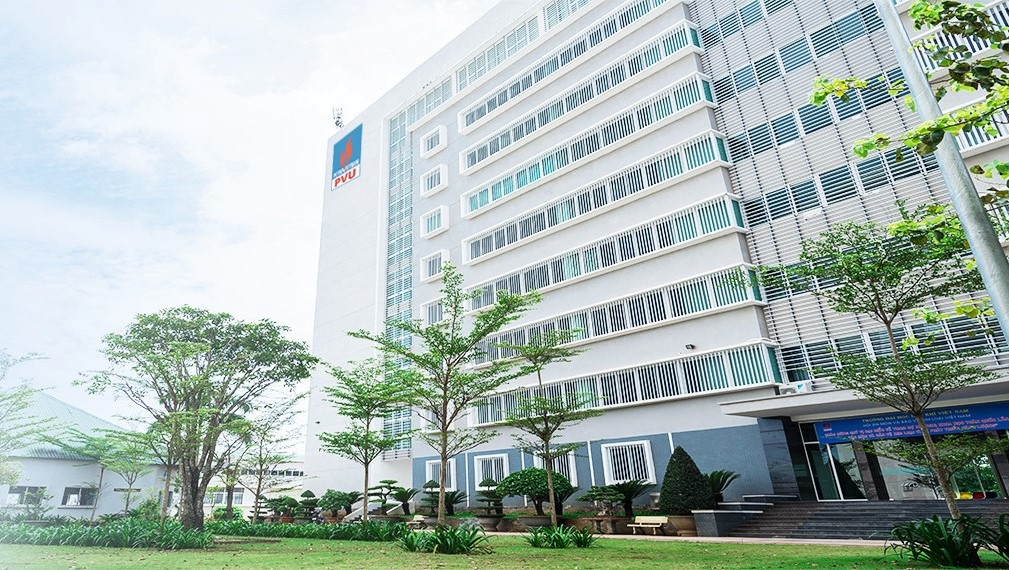
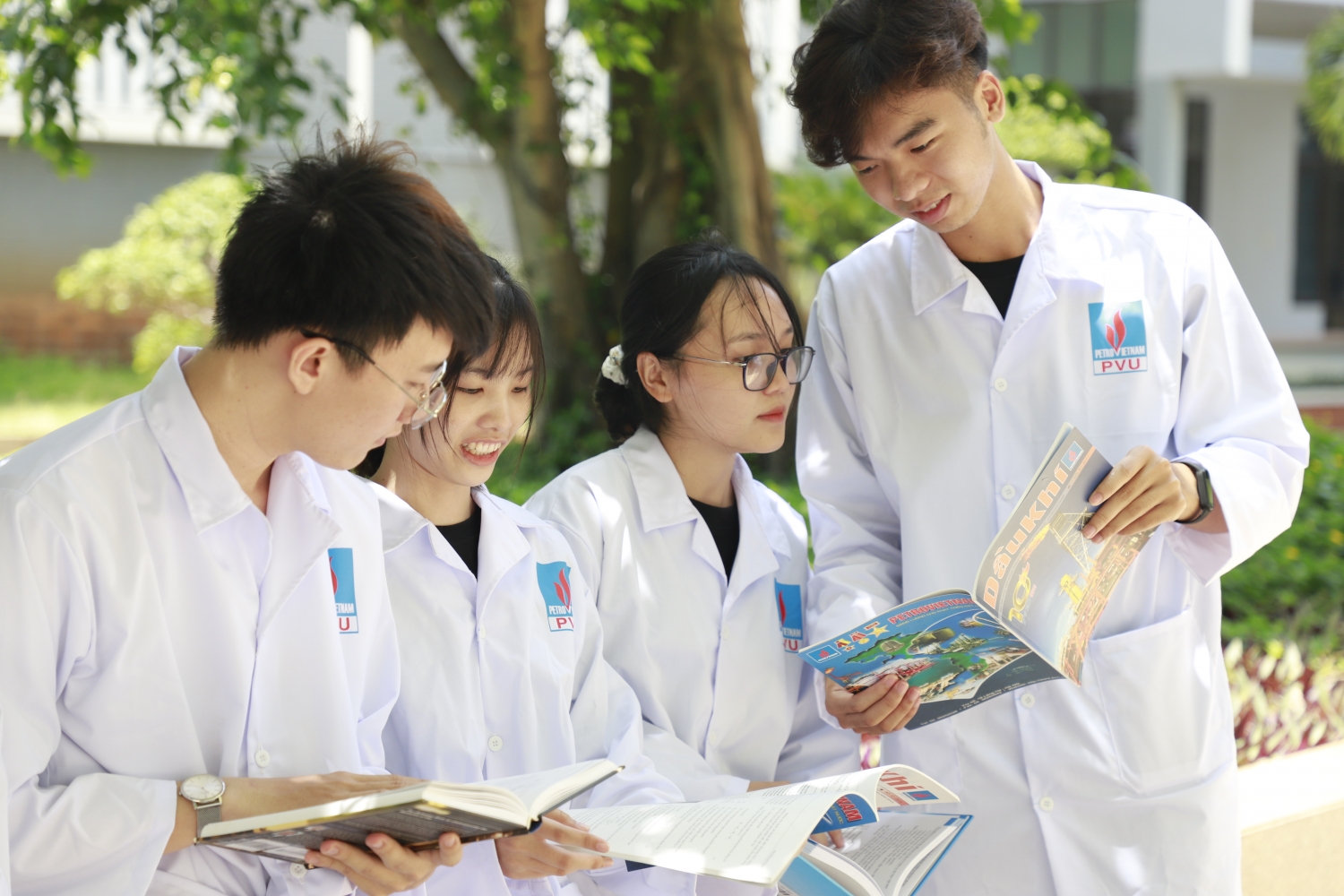
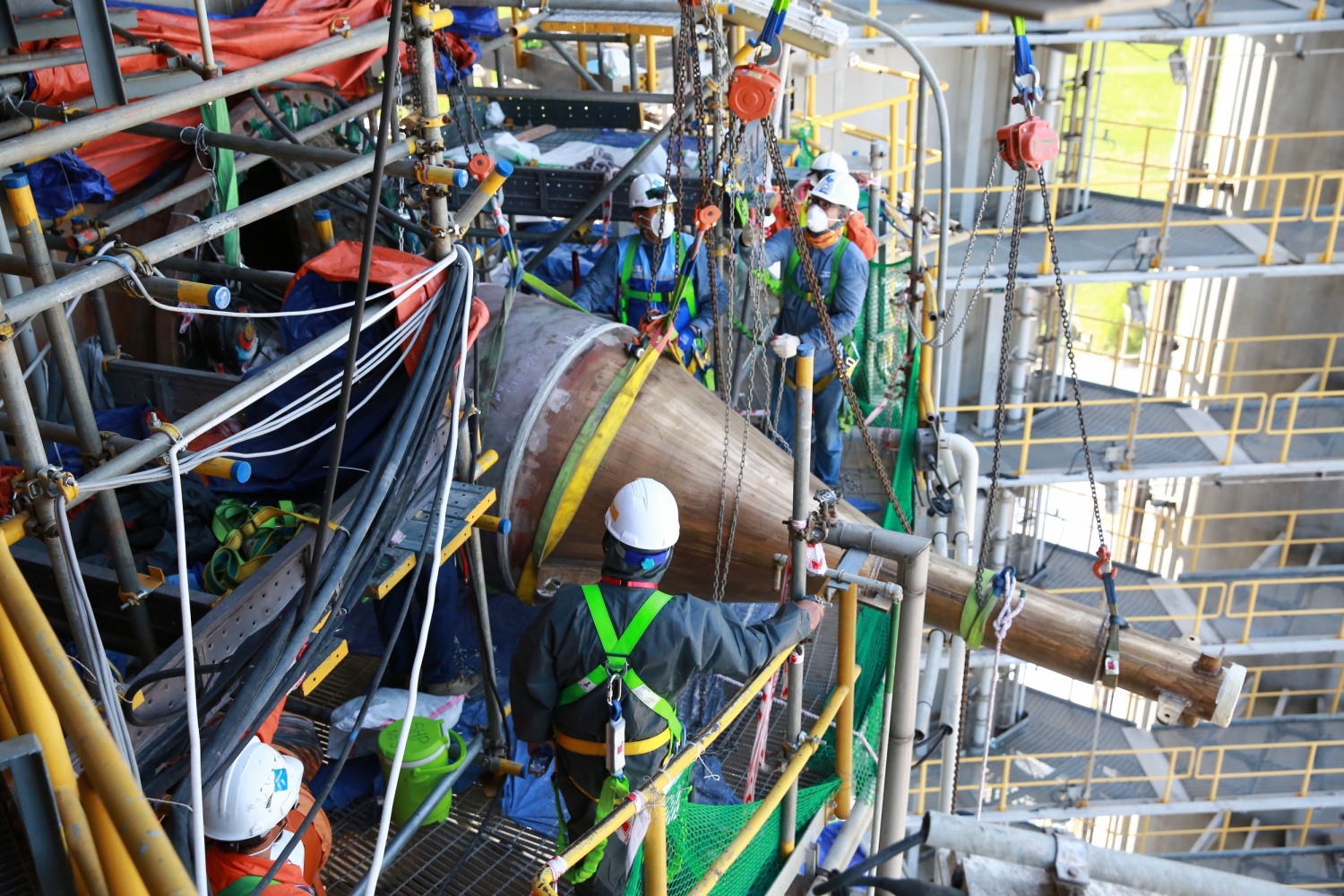



![[Photo] National Assembly Chairman Tran Thanh Man attends the first plenary session of AIPA-46](https://vphoto.vietnam.vn/thumb/1200x675/vietnam/resource/IMAGE/2025/9/18/4593de8b5fb349d7a3da4b5de7faccf6)

![[Photo] Prime Minister Pham Minh Chinh receives IMF Deputy Managing Director Kenji Okamura](https://vphoto.vietnam.vn/thumb/1200x675/vietnam/resource/IMAGE/2025/9/18/bc66071867d8445288972497f498990c)







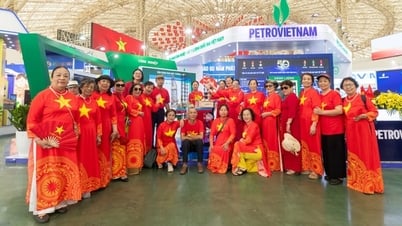





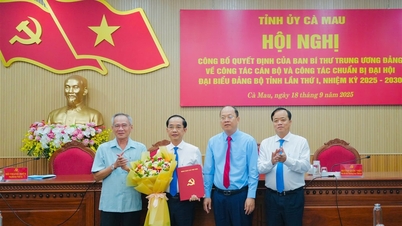







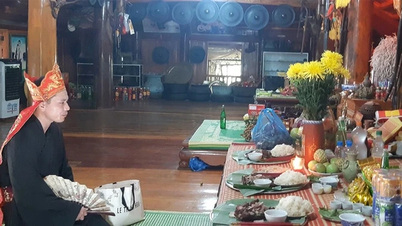












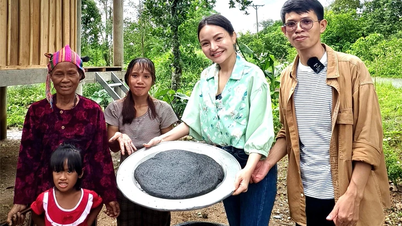





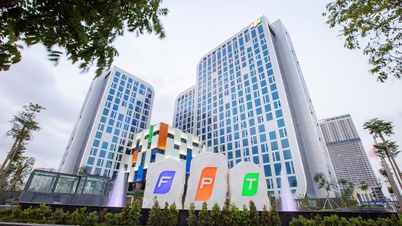


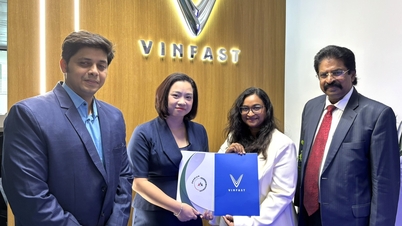


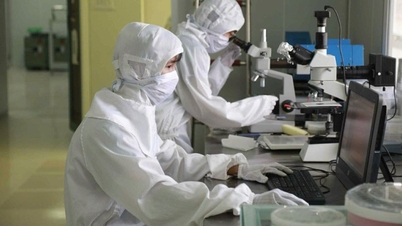














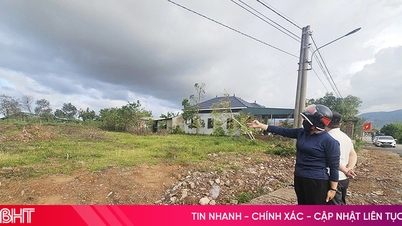

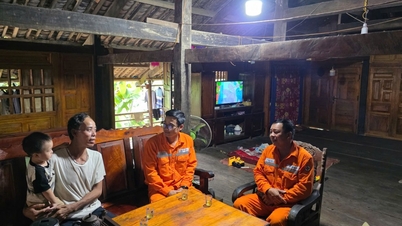

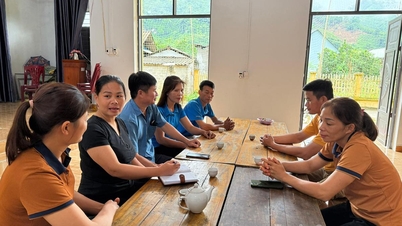





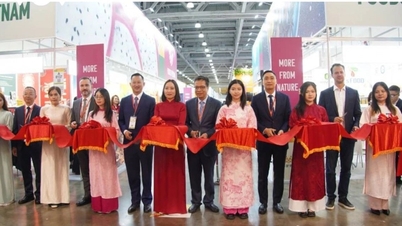











Comment (0)